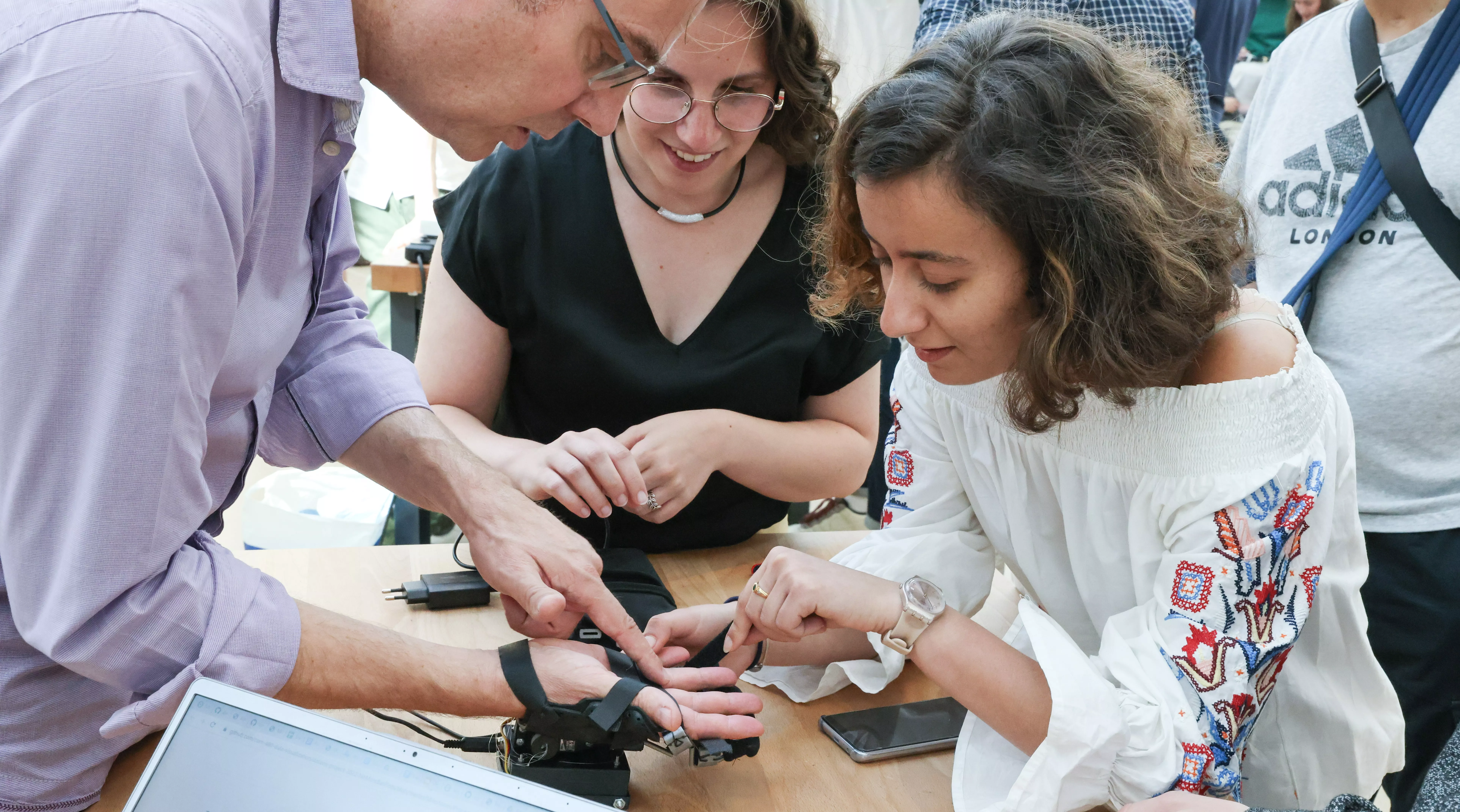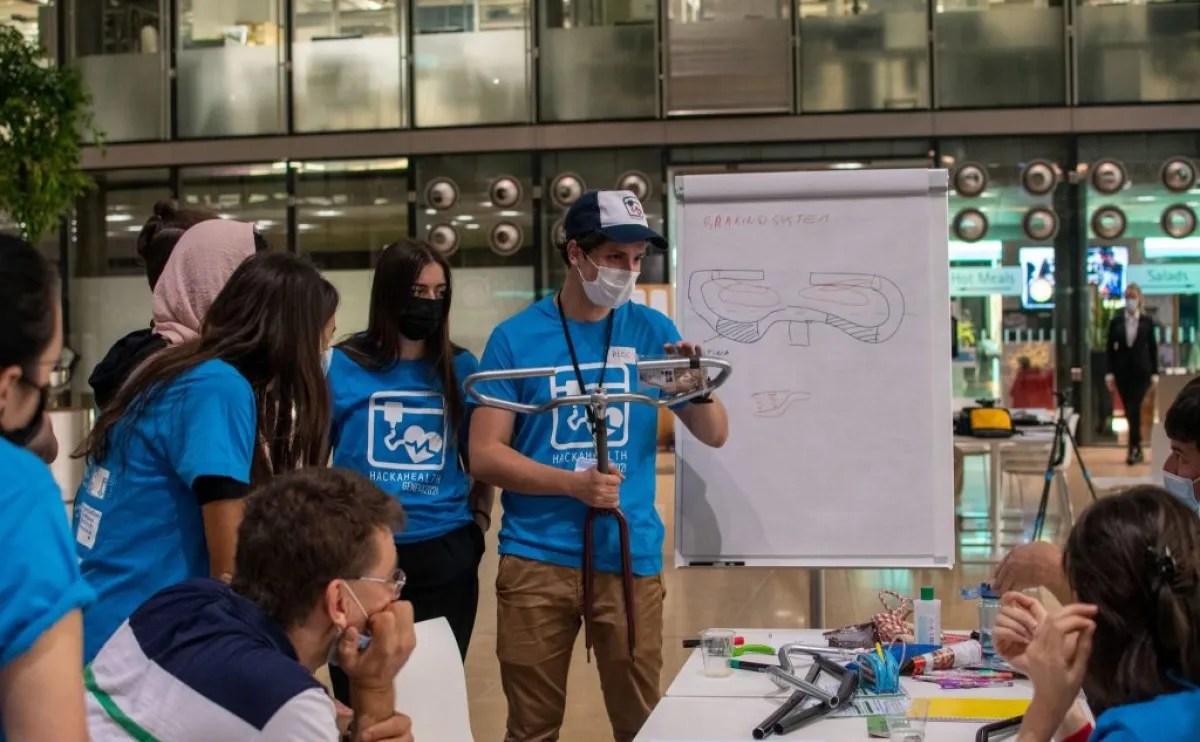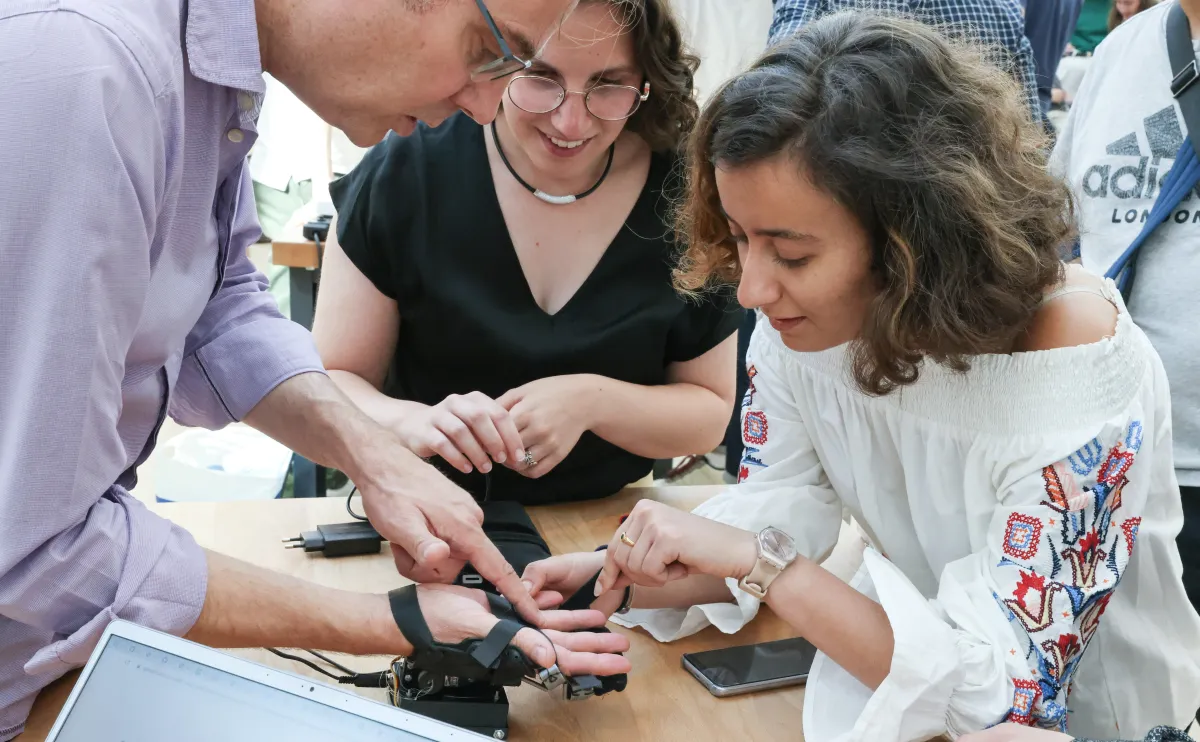
(Spring semester only) Develop personalized solution to assist impairment of real patients
EPFL Assistive Techn... - Project
(Spring semester only)
The Assistive Technologies Challenge, will give students the opportunity to design and develop meaningful technological solutions for and with people with disabilities. The challenge aims at giving the students first hand experience in working with real end-users and to understand how their skills and abilities can have a positive impact on society.
The challenge will be offered as a group semester project and is open to all sections within STI (SGM, SMT, SEL, SMX), NX, SV and IC.
Multidisciplinary teams of 4 students will be assigned a "challenger" with a specific need to solve an everyday challenge. By adopting a "user-in-the-loop" approach, the students will translate these needs into tangible goals. Over the course of several iterations, they will work towards achieving these goals by following an established product design methodology for medical devices.
A project assistant will advise each team by monitoring their progress and providing them guidance during the semester. Furthermore, the students will participate in interactive workshops focused on user-centric design, prototyping methods, project resource management, and the ethical considerations of working with humans within the sphere of medical technologies. Workshops will be on Thursdays 1:15-3pm. The teams will have access to prototyping facilities, and will be assigned a gracious budget to purchase materials & services.
6 projects are proposed to students in Spring 2025:
P1: Navigation on EPFL campus for a wheelchair user The project will aim at developing a navigation tool (i.e. map or other similar functional interface) to help a wheelchair user to plan its journey throughout the EPFL campus. This solution will take the individual mobility constraints of the user into account.
P2: Artificial Eye The aim of this project is to design a device that can assist vision impairment by offering a portion of the field of view in a zoomed or contrast enhancing format. The two essential features are a camera that can be worn or placed on a table, and a touchscreen that can be used to view and zoom/manipulate the images captured by the camera. The aim is to enable real-time image adjustments.
P3: Music instrument for children with polyhandicap This project is being run in conjunction with La Cassagne Special School. Drawing inspiration from the “Orgue Sensoriel”, a collaborative music instrument allowing children with disabilities to play music together, the project will develop an adapted instrument for the children of the La Cassagne institution.
P4: Arms collaborative dance game This project is proposed in collaboration with La Cassagne. Drawing inspiration from the video game “Just Dance”, this project will develop a solution adapted to two specific users to allow them to perform dance moves with their arms and hands, and to play the game together.
P5: Arm support for a wheelchair user This project will develop a solution to adapt or create an arm support for a wheelchair user. The goal is to help the user in grasping and holding objects. The solution will provide an item that can be carried with the user and attached to the wheelchair.
P6: Auditive device adapter for cochlear implant user This project aims at creating an earphones-to-headphones adapter for a cochlear implants user. Cochlear audio detection uses microphones placed outside and above the ear, making it impossible to use earphones. The adapter will allow the user to turn earphones into usable headphones.


Academic Supervisors